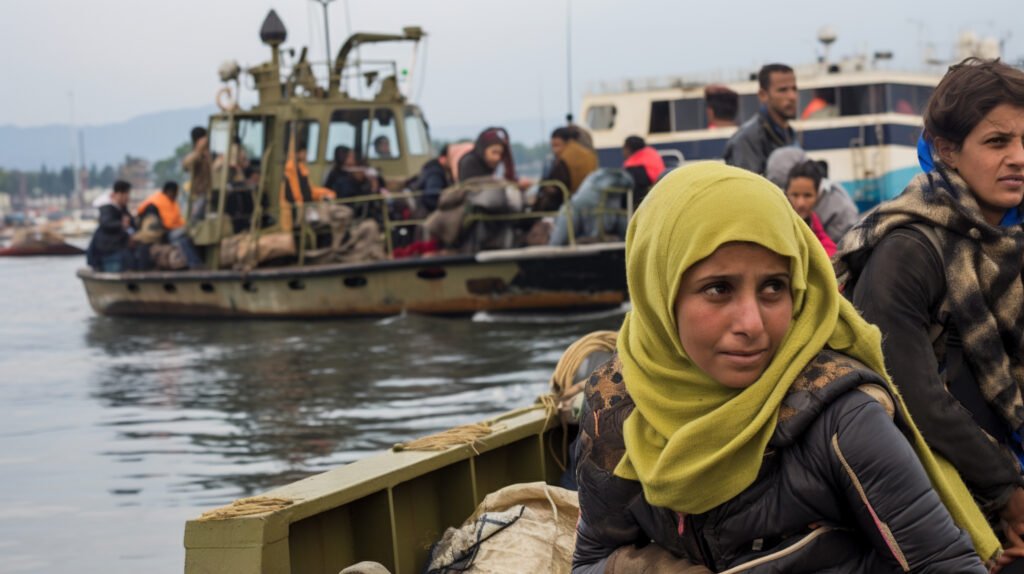Tent Scraps as Menstrual Products and C-Sections Without Anesthesia: Gazan Women’s Hell
Lisa Samy
February 2024
October 7th, 2023. The day that Israel began its series of deadly onslaughts in the Gaza strip, displacing more than 85% of Palestians from their homes.[1] Supplies are scarce, hunger cripples the masses, and diseases run rampant.[1] But for women and girls, various unseen struggles haunt them for every moment the conflict persists.
Pregnant Women and the Future Generations
Around 183 women are estimated to give birth in Gaza daily.[2] Because of a shortage of drugs, functioning hospitals, and medical supplies, women in labor aren’t provided with the most basic care for their hygiene and physical/mental health.[2] Cesarean sections are performed without anesthesia, and women are forced out of hospital rooms in only a few short hours after giving birth.[2] These dire conditions exacerbate postpartum recovery, leading to a higher risk of maternal mortality.
On the other hand, poor care has already led to negative outcomes for the health of numerous newborns. Many Gazan healthcare providers have reported a sharp increase in the number of stillborns and miscarriages.[2] And for the babies who do survive, they are born into a world that fits one word: hell. Tess Ingram, a UNICEF communications specialist, says, “Seeing newborn babies suffer while some mothers bleed to death should keep us all up at night.”[3]
The devastating effects of mothers’ exposure to armed-conflict, violence, and starvation will without a doubt imprint themselves on their children.[2] However, we won’t know the severity of the long-term generational effects for years to come.

Not a Single Pad in Sight? Then Anything Goes
A woman in Gaza, Heba Gersof, can’t find a single pad in a pharmacy no matter how far she scours the streets.[1] And if she does miraculously find pads in stock, they are five or six times the price—an expense that the average Gazan women cannot afford.[1] Gazans are already deprived of food, water, and basic necessities, but the lack of accessible menstrual products only adds an extra layer of suffering.
What do these women do then? They use whatever they have at their disposal to replicate menstrual pads. These include old clothes, towels, or even scraps from their tents.[1] These unsanitary materials aren’t guaranteed to be washed properly and regularly either, as soap and water are a rarity.[3] Therefore, women who take the risk of using these as makeshift-pads are at high risk for infections, particularly the highly lethal bacterial infection Toxic Shock Syndrome.[3]
Other women choose to take contraceptive pills that suppress their menstrual cycles, but these pills are scarce and often not allowed to enter the “tent cities” Gazan refugees have set up.[3] In short, any alternatives are scarce, turning menstrual cycles into a deadly interval of humiliation and mental torment.
What Can We Do?
Unfortunately, these topics do not get the attention they deserve. The topic of menstruation is a taboo subject in Gaza’s traditional society, indicating it is rarely talked about amongst Gazan women.[3] Therefore, we urge the global community to spread awareness, whether it’s through sharing information on social media or championing volunteer groups, organizations, and aid relief programs to supply women’s health products to Gazan women.
Pious Projects
Want to help Gazan women, but unsure of where to start? Pious Projects is a registered 501(c)3 humanitarian group that is currently raising funds to send feminine hygiene kits to vulnerable Gazan women. To support them through donations or learn more about their mission, please see the link below.
References
[1] Batrawny, Aya. (2024). Women in Gaza are desperately in need of washrooms, privacy, and pads. NPR. https://www.npr.org/2024/01/05/1223193875/women-in-gaza-are-desperately-in-need-of-washro oms-privacy-and-pads
[2] Elkanib, Shatha. (2024). Pregnant women in Gaza require urgent protection. The Lancet. https://www.thelancet.com/journals/lancet/article/PIIS0140-6736(23)02835-0/fulltext#:~:text=A pproximately%20183%20women%20are%20estimated,pregnancy%20or%20birth%2Drelated% 20complications.&text=occupied%20Palestinian%20territory-,oPT%20emergency%20situation %20update%20as,December%202023%20at%2015%3A00.
[3] Sky News. (2024). Women in Gaza having c-sections without painkillers as girls use tent scraps for period products. https://news.sky.com/story/women-and-girls-in-gaza-using-scraps-of-tent-material-in-place-of-pe riod-products-13053083?dcmp=snt-sf-twitter.





